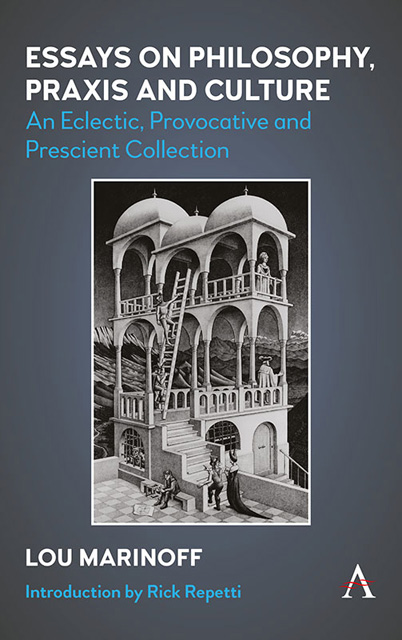Essay #7 - The Matrix and Plato’s Cave: Why the Sequels Failed
Published online by Cambridge University Press: 10 January 2023
Summary
This essay originally appeared as Lou Marinoff, “The Matrix and Plato’s Cave: Why the Sequels Failed,” in More Matrix and Philosophy, ed. William Irwin, (Chicago: Open Court, 2005), 3–11.
Unlike the other essays in this collection, it was written for the more “mainstream” readership of William Irwin’s immensely popular series.
It is republished here by permission of Cricket Media.
The Matrix and Philosophy
The Matrix and its sequels—The Matrix Reloaded and The Matrix Revolutions—embody many deep connections to philosophy. Movie-goers immediately began to make some of these connections for themselves. When professional philosophers chimed in, thanks to The Matrix and Philosophy, public awareness of these connections deepened, and public interest grew. Movies have potentially great power to entertain us, or to provide a temporary escape from daily routine. But beyond this, some movies also have the power to stimulate thought about important issues in life, or to help us rethink such issues in a new light. This is exactly why The Matrix was so successful. Let me give you an example of what I mean.
I teach philosophy at a large American public university (The City University of New York). There is a required core course in Philosophy, which every student must take in order to graduate. All the philosophy professors teach some version of this course, in multiple sections, to hundreds of students every year. Many students take this course without ever realizing the relevance of philosophy to their everyday lives. They sometimes struggle to make sense of the required readings, without really appreciating why the ideas of philosophers like Plato, Descartes, or Nietzsche form an integral part of their undergraduate education and preparation for adult life. The Matrix changed all that, and in a powerful way. In order to make the first two points of this essay, I will explain both how and why The Matrix makes a difference to students of philosophy. Since we are all “students of philosophy” in one way or another, these points have broad applications to you, the general reader, and by extension to society as a whole.
- Type
- Chapter
- Information
- Essays on Philosophy, Praxis and CultureAn Eclectic, Provocative and Prescient Collection, pp. 129 - 136Publisher: Anthem PressPrint publication year: 2022



